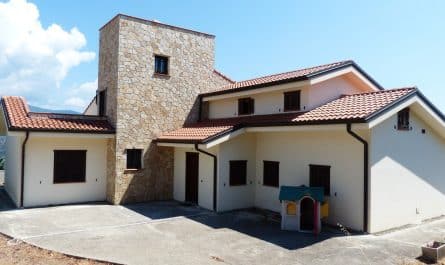Senior shared accommodation is an increasingly popular alternative for older people looking to maintain their independence while living in a friendly and secure environment.
As an alternative to traditional residences, this shared housing model offers numerous benefits both socially and for the health and well-being of retirees. Discover below how shared accommodation between seniors works, its benefits, as well as the existing systems to facilitate the search for suitable accommodation.
Senior shared accommodation: a new way of living together
Senior sharing consists of sharing accommodation with other elderly people. Unlike traditional residences, where seniors often live alone in apartments or independent rooms, shared accommodation creates a real common living space. Each roommate has their own private space, but shares certain parts of the accommodation with the others such as the kitchen, living room or even the garden.
This approach promotes social interactions while preserving everyone’s privacy. In addition, by opting for shared accommodation, seniors can benefit from a distribution of housing costs, which makes this option economically more accessible than certain private or medical residences.
Families also see in the senior roommate an opportunity to offer them a socially stimulating and warmer environment.
The benefits of senior shared accommodation on health and well-being
Shared accommodation between seniors has many benefits for health and well-being. The first major benefit is the reduction of isolation. By living in shared accommodation, seniors share their daily lives with other people their age, which promotes the creation of social bonds and mutual aid.
This aspect is essential, because social isolation can have serious consequences on the mental health of older people, increasing the risks of depression or anxiety.
In addition, shared accommodation stimulates physical and cognitive activity. Roommates can organize activities together, whether it’s walks, board games or discussions.
These regular interactions help maintain good physical and mental fitness, thus delaying the effects of aging. In addition, living in a secure environment (where roommates look after each other) helps prevent domestic accidents and reassure families.
The collective living environment also offers important psychological support. Knowing that you are not alone in times of need brings a feeling of security and comfort. This environment contributes to more peaceful aging and a better quality of life for seniors.
Solutions and support systems to facilitate the search for accommodation
Finding a suitable shared accommodation for your loved ones may seem complex, but there are several support systems to make the search easier. Many specialized platforms offer services dedicated to senior shared accommodation.
These sites connect retirees looking for shared accommodation with owners or structures offering suitable colocation solutions. In general, they offer geolocated ads and personalized selection criteria, allowing you to quickly find the ideal shared accommodation.
At the same time, local associations helping seniors offer personalized support to guide families through this process. They can provide practical advice on administrative procedures, financial aid available or even on the arrangements to be made to guarantee the security of the premises.
These structures also make it possible to check the compatibility between potential roommates in order to ensure harmonious cohabitation.
In addition, it is possible to benefit from financial aid to reduce the costs of senior shared accommodation. Seniors can, for example, benefit from housing allowances under certain conditions. These systems make shared accommodation accessible to a greater number of elderly people, while ensuring a secure and suitable living environment.
The importance of a healthy and secure living environment
To age well, it is essential to evolve in a healthy, secure and socially enriching environment. Senior shared accommodation perfectly meets these criteria by offering a living environment adapted to the needs of elderly people.
Shared accommodation is often designed to prevent risks linked to reduced mobility such as falls using specific equipment: access ramps, support bars, etc. The roommates can also count on the presence of home help or emergency services if necessary.
Senior sharing also promotes a socially enriching living environment. By living together, roommates develop relationships of friendship and mutual support, creating a true community. This aspect is crucial for the well-being of seniors, because it contributes to their personal development and emotional balance.





